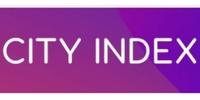Perhaps the most widely traded markets in the world, the Dow Jones 30 and the S&P500; are often used as determiners of the overall health of the US economy. For spread bettors, both these markets present unique opportunities, and hold advantages in their own right over other global stock and derivative markets. But what exactly is it about the Dow Jones and the S&P500; that make them particularly appealing to spread bettors?
The Dow Jones

As a representation of industrial response to key trading signals, the Dow Jones is a favourite amongst spread bettors looking to capitalise on market trends and hone their trading skills. With conventional trading wisdom requiring traders to learn one or two markets at first to build experience and hopefully generate trading profits in the short term, the Dow Jones is one of the foremost indices for spread betting, allowing traders a comparatively transparent market for analysis and study as they learn the ropes.
Even for more experienced traders, the price volatility of the Dow Jones index, and its reaction to trading across the other developed markets make it an index with potentially low hanging fruit, where the shrewd trader can make gains as a result of trading upwards and downwards price trends.
Recommended US30 and US500 Spread Betting Brokers



These companies are best suited for spread betting on Wall Street Indices. Best spread betting platforms.
S&P500
The S&P500 or the Standard and Poor’s 500, comprises an index of the US’s 500 largest companies, with the index providing an average of performance amongst these largest of US listed companies. As one of the most comprehensive US markets, trading on the S&P500; is often strategically linked to US economic performance, and spread bettors tend to bet on the position of the overall index over the course of a trading day, factoring in how they think the market might react to wider goings on.
However, while the S&P500; is comprehensive to an advantage, this can also lead to problems in reading exactly how economic indicators and announcements might factor in to overall market attitudes. Because the 500 companies it tracks operate across a wide variety of market sectors, certain external factors may be beneficial in some areas and detrimental in others, leading to often hard-to-predict results.
This makes the S&P500; very tricky to second guess, and a potentially dangerous market for the new investor. That said, for the trader with a desire to learn his market and get stuck in to trading, the S&P500; can present a profitable basis on which to spread bet for significant daily index movements.

